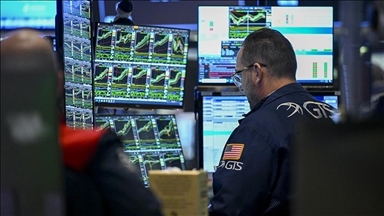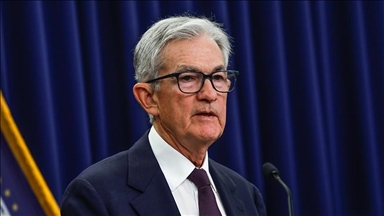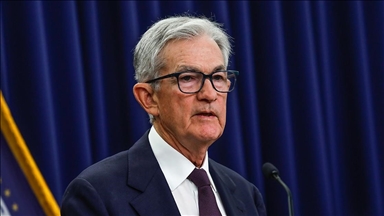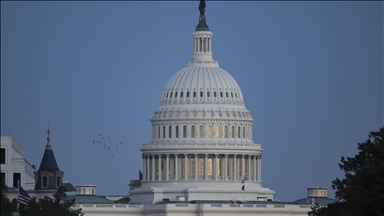Global government bonds face selling pressure due to US financial concerns
Trump’s push for rate cuts, tariff-induced uncertainties, and major spending bill shake investor confidence as bond prices fall but yields rise in rest of world, economists say
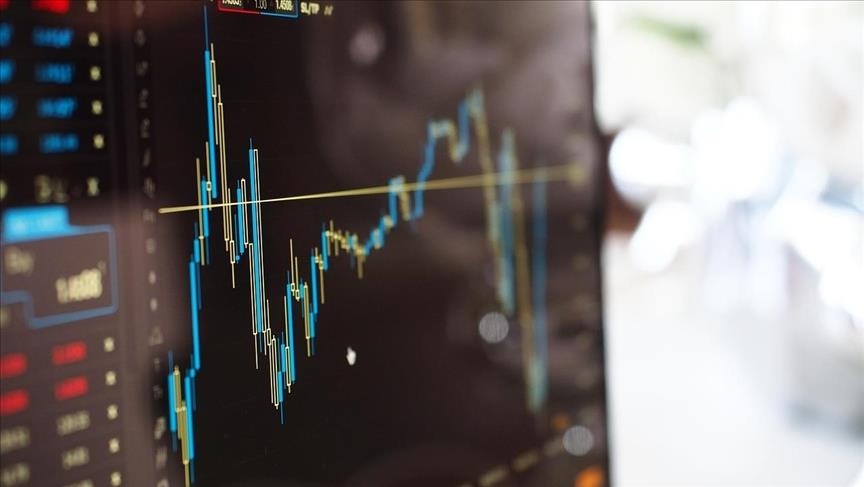
ISTANBUL
Rising concerns over the US economy and its fight against inflation, combined with the tariff agenda, led to increased selling pressure on long-term government bonds globally.
A federal appeals court in Washington, DC, ruled last week that US President Donald Trump exceeded his presidential authority with the sweeping reciprocal tariffs. If the Supreme Court rules that tariffs are illegal, it is unclear how the US economy will compensate for the revenue generated by the tariffs.
Meanwhile, the Fed is expected to cut interest rates on Sept. 17.
The US 10-year bond rose to 4.3%, Japan's 10-year bond increased to 1.63%, and in the eurozone, France's 10-year bond reached 3.58% and the UK's 10-year bond 4.69% -- the two countries where uncertainty persists.
In this climate, central banks and institutional investors have turned to gold, which reached another all-time high of $3,578.54 per ounce on Wednesday.
According to analysts, bonds and gold are the primary safe-haven assets in times like these.
Ekin Cinar, chief economist at Türkiye-based financial services firm Tacirler, told Anadolu that countries' debt and budget deficits have an impact on long-term bond yields, particularly in the UK, where the budget deficit is putting pressure on the country's bonds and the British pound.
"While this situation is also observed in Japan, the US' case is different; I expect the rising pressure on the Fed to cut its rates to intensify the steepening yield curve in the coming period," she explained.
Cinar believed that bond yields would fall in the short term. However, a series of rate cuts issued "without regard to economic fundamentals" may result in a higher interest rate environment that may persist for a longer period of time.
She noted that long-term bond yields continue to rise, particularly in the US.
"A major spending bill has been passed in the US, and Trump has been pushing for rate cuts -- they will probably cut rates in succession in the coming period.
"This is not in line with economic justifications --employment remains weak, and there's sticky inflation, meaning that rapid rate cuts will increase perceptions that the Fed may need to tighten much more at some point, leading to a rise in long-term bond yields," she said.
Cinar said the Fed is expected to cut interest rates twice by the end of the year.
"Market estimates point to a cut in September with 90% probability, but next year is a little more important," she said.
"(Fed Chair Jerome) Powell's term is ending, and we're seeing more and more Fed members replaced with more 'dovish names,' so, at this time, we expect two possible rate cuts for this year, but we expect volatility to continue in market estimates," she added.
Burak Pirlanta, a research specialist at Turkish financial services firm Gedik Investment, told Anadolu that the rise in US bonds is primarily due to the country's fiscal problems, as the budget deficit reaches record levels and new tax cuts and spending plans add to the debt burden, undermining investor confidence.
Pirlanta said long-term US bonds are reaching their highest in recent years, while developments like Trump’s proposal for higher tariffs for China fuel inflation by disrupting global trade chains and reducing demand for bonds.
He noted the developments in Japan and the UK are deepening the crisis.
"Inflation in Japan surpassed the US, and the country's budget deficit remains very high -- this strengthens the expectations that the Bank of Japan (BoJ) may raise its rates," he said. "The latest bond auction saw weak demand, which led to higher borrowing costs."
"The UK's spending far exceeded its revenue, and bond yields reached their highest since 1998 -- the Bank of England (BoE) was forced to cut rates amid inflation and increasing bankruptcies, which damaged confidence," he added.
Pirlanta believed that even if the Fed begins to cut rates, long-term bond yields may not fall because rate cuts risk causing the US dollar to fall or borrowing costs to rise.
“Narrowing global interest rate differentials could boost the investor shift from US bonds to Japanese bonds,” he said. “And while this rise could have a widespread impact on the markets, stocks may see a similar movement to the fluctuations of August 2024.”
He emphasized that assets such as gold and silver are rapidly rising, with gold rising more than 35% this year, indicating that investor confidence has shifted toward more tangible assets such as precious metals.
"As the US dollar's share in global reserves declines, gold reserves reached a 30-year high," he noted.
"The rise in bond yields is due to financial problems, inflationary pressures, and central bank policies -- crises in Japan and the UK should be considered as warning signs for the global market, as investors may avoid long-term bonds and look to safer assets like gold," he added.
Anadolu Agency website contains only a portion of the news stories offered to subscribers in the AA News Broadcasting System (HAS), and in summarized form. Please contact us for subscription options.


